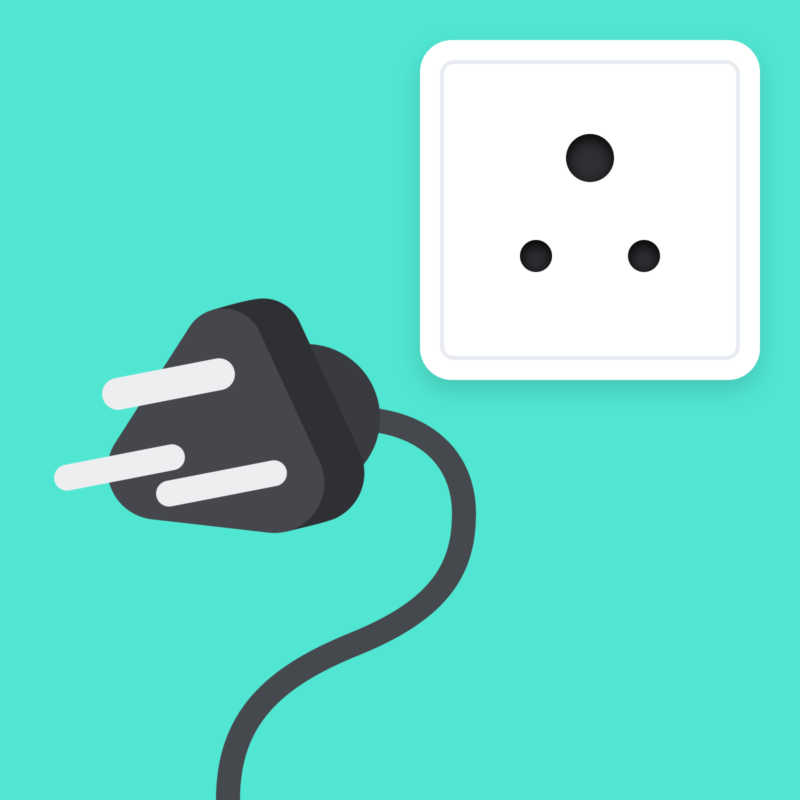
Importance of Plugs & Sockets and it’s mandatory BIS certification
Importance of electrical safety
Seldom do people think about the electrical sockets to which the electrical and electronics equipment’s are meant to be plugged.

How many times do we check about the type of sockets we are having in our places or the plug types of the equipment we are purchasing from the market. We insist they must be of a good brand and quality. Electrical plugs and socket-outlets differ in voltage and current rating, shape, size and type of connectors. The types used in each country are set by national standards body and for India, it is being decided by BIS (Bureau of Indian Standards). Electrical safety of your house is important and these plugs and sockets are vulnerable.
Design features of plugs and socket-outlets have gradually developed to reduce the risk ofelectric shock and fire. Safety measures may include
- All plugs & sockets designed in India as per designated Indian Standard i.e. IS1293.
- Pin & slot dimensions and layout that permit only proper insertion of plug into socket-outlet.
- Earth pin longer than power pins, so the device becomes earthed before power is connected.
- Requirements for floating terminal have been added these days.
- Electrical insulation of the pin shanks was added as an additional feature to reduce live contact exposure when a plug is partially inserted into a socket-outlet.
- Shutters that open only for the correct or right plug which certainly prevent foreign objects from coming into contact with live slots of socket.
- New electrical test requirements have been added to ensure zero strain on non-rewirable plugs and non-rewireable portable sockets.
Commonly used Electrical Plugs in India
| Type C | Type D | Type M |
| Used in: India, Europe etc. with some exceptions. | Used in: India, Sri Lanka, Nepal, Namibia etc. | Used in: India, Bhutan, South Africa, Israel etc. |
| The Type C electrical plug (or Euro plug) is a two-wire plug that has two round pins. | The Type D electrical plug has three large round pins in a triangular pattern. | The Type M plug has three round pins in a triangular pattern and looks similar to the Indian Type D plug, but its pins are much larger. |
| It can be inserted in either way into the socket. | Type M plugs are often used alongside Type D plugs for larger appliances and as a result, some sockets work with both Type D and Type M plugs. | Type M plugs are sometimes used for bigger appliances in countries that make use of Type D plugs, as well as in Israel (Type H). |
| Type C plugs are generally limited for use in appliances that require 2.5 amps or less. | Type D plugs are rated 6 amps. | Type M plugs are rated 10/16 amps. |
 |
 |
 |
BIS (Bureau of Indian Standards)
BIS is the national standards body of India who engaged in the preparation and implementation of standards, operation of certification schemes both for products and systems, organisation and management of testing laboratories, creating consumer awareness and maintaining close liaison with international standards bodies.
Recently, BIS has released the new gazette notification on mandatory requirements for ISI certification on PLUG and SOCKET as per IS1293 standard. As per this order, all the domestic as well as foreign manufacturers/factories (who is actually producing the goods) have to get their products tested & certified according to BIS norms & said standards in order to commercialise their products in Indian open market. This standard will be covered on plugs and socket-outlets of rated voltage up to and including 250 volts and rated current up to 16 amperes. This order will be mandated from 1st of June 2020. As per this standard, all the plugs & outlets must be BIS approved. Therefore, the manufacturers should implement the necessary changes for manufacturing of plugs and sockets before the last date of implementation.
Know your plugs & sockets if they are safe or not?
Prior purchasing the plugs & sockets from open market, do ensure it has valid ISI mark over physical product or packet. It is a “Mark of Trust” bases on which end-consumer can easily believe that any product to be electrically safe. Hence, this mark certifies that a product conforms to the Indian Standard (IS), mentioned as CM/L-******* on top of the mark, developed by the BIS, the national standards body of India. Violation or misusing of BIS standard mark is a punishable offense.

The process of validating the ISI mark